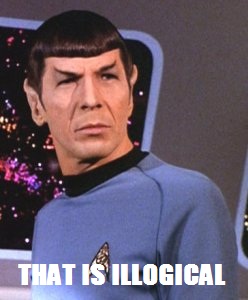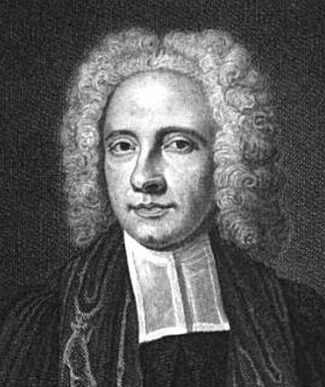podcast 335 – Pastor Jeff Deuble’s Christ Before Creeds
“In essentials, unity; in non-essentials liberty; in all things, love.” So far, so good. But, what does Scripture say is essential teaching about Christ and about God?
“In essentials, unity; in non-essentials liberty; in all things, love.” So far, so good. But, what does Scripture say is essential teaching about Christ and about God?
Why it is just as obviously a confusion to run together Jesus and God as it is to run together Jesus and the Father.
 Minister Jeremy Myers asks: “Did Jesus Learn?“ (HT: James McGrath on Facebook)
Minister Jeremy Myers asks: “Did Jesus Learn?“ (HT: James McGrath on Facebook)
Great post. One favorite bit:
At one point in our discussion, I said, “Well, it seems logical that if Jesus was fully human, then He had to learn.” Their response was, “I don’t use logic. I just use Scripture.” I just about broke out laughing. It seemed pretty obvious to me that logic was not being used. Ha! One guy also kept saying, “I don’t speculate about Scripture. I just believe what it says.”
Oh, “logic” (really, human reasoning ability) was being used… just not well! 😉
In any case, he answers the question of the post affirmatively.
I agree with Jeremy that according to the New Testament, Jesus learned. Any theory about Jesus must incorporate this fact. And while he was doing that, there were truths he did not know.
But that gives rise to this argument:
I would say, in evaluation of this argument:Read More »Jeremy Myers asks: “Did Jesus Learn?”
This brings the total of R’s to 6. Wish I could say there weren’t more coming! We’ve looked so far at two ways Christians may respond to apparently contradictory doctrines: Redirection and Restraint. We now move on to a third strategy: Resolution. In brief, the Resolver holds that the apparent contradiction can be banished, made to disappear. She doesn’t change the subject (as the Redirector),… Read More »Dealing with Apparent Contradictions: Part 7 – Resolution by Rational Reinterpretation
Here are some brief comments on a book review of Nicholas Lash‘s A Reading of the Apostles’ Creed. (Full ref: Robert P. Imbelli, “Believing Three Ways in One God: A Reading of the Apostles’ Creed”, Commonweal, Jan 28, 1994, 121:2, p. 24. – accessed online through Infotrac.) (my emphases added) Lash rightly insists upon God’s incomprehensible nature and advocates a welcome modesty of speech in… Read More »Lash: “modes” or “ways”, not “persons”
Over at Parchment and Pen, there’s a six week, six-installment debate starting over “the” doctrine of the Trinity. That is, what I’ve elsewhere called the orthodox formulas – that each Person “is” God, that there’s only one god, and that the three Persons differ. Here at trinities, we’ll offer summaries and philosophical commentary on each round. Feel free to weigh in with your views on… Read More »Scoring the Burke – Bowman Debate – Intro
A conversation on Dr. William Lane Craig’s unique take on the Trinity.
Do you think that you preexisted your conception? Me neither. True, there are cultures which presuppose this. But most of the human race, including ancient Jews, assumes that getting parented involves getting brought into existence some time between the sexual union and birth. You, the younger human being, exist because of what your parents did. This, I suggest, is the default human assumption. You exist because of them. Abe and Sarah… Read More »Buzzard’s textual arguments against Jesus’ pre-human existence – Part 3

Daniel Waterland (1683-1740) was by all accounts the most important disputant of Samuel Clarke about the Trinity.
Waterland spent his career at Cambridge, where he rose through the ranks, eventually becoming Vice-Chancellor, and also serving as a Chaplain to the King, and as an Anglican clergyman in a number of cities.
He had a good reputation, and was an energetic, but normally cool-headed controversial/polemical writer (aganist Clarke, and other other theological topics, against other respected men), and he gained somewhat of a reputation in Anglican circles as a defender of catholic orthodoxy.
Many, including himself, contemplating his becoming a bishop, but in 1740 he died after complications, seemingly, from surgeries on an ingrown toenail in one of his big toes! He was survived by his wife of 21 years. (His only children were his books.)
I’d describe Waterland’s views on the Trinity as social, with a liberal dose of negative mysterianism. Like Clarke, he insists that his is the ancient catholic view, and much of the dispute concerns pre-Nicene fathers. Like Clarke, he wants to stick to those fathers and to the Bible, and takes a dim view of medieval theology.
About the pre-Nicene catholic “fathers,” I’d say both Clarke and Waterland somewhat bend the material to their own ends (I mean, they tend to see those authors as supporting their view, and being perhaps more uniform than they were), but I think Waterland bends the materials more. In his view, catholics had always believed the Three to be “consubstantial” in a generic sense, yet which, somehow, together with their differences of origin, makes them but one god. Like Swinburne and Clarke, he agrees that the Father is uniquely the “font of divinity.” He continually hammers Clarke with the claim that there’s no middle ground between the one Creator and all creatures.
In this series, I’ll examine the way he deals with some favorite unitarian proof-texts, which, unitarians think plainly assert the numerical identity of the Father with the one true God, Yahweh. According to Waterland, these unitarians are making a mistake like the one I made.
You [i.e. Clarke] next cite John 17:3, 1 Cor. 8:6, Eph. 4:6, to prove, that the Father is sometimes styled the only true God; which is all that they prove. Read More »Daniel Waterland on “The Father is the only God” texts – Part 1
Some reasons why we should think that the New Testament writers don’t believe that Jesus literally existed before his time in the womb.
John Duns Scotus (d. 1308), nicknamed by tradition “the Subtle Doctor,” was one of the most important medieval Christian philosophers, and was notorious for the difficulty of his thought. In this episode, we hear a specialist in medieval philosophy give a conference presentation on Scotus’s views on identity (sameness) and distinction (difference). Nowadays most philosophers and logicians recognize qualitative sameness (aka similarity), which comes in degrees,… Read More »podcast 65 – Dr. Joshua Blander on John Duns Scotus on Identity and Distinction
“…the doctrine of the Trinity is not in Scripture per se, but is the result of the Church’s interpretation of Scripture.”
Thanks to Dr. James Anderson for his further reply to my reply to his initial answer to the Challenge to “Jesus is God” apologists. His new post does clarify his position for me. Perhaps later, I’ll reply more straightforwardly, but for now… story time! The story concerns premise 4 of the Challenge… The new kid at the high school seemed somehow different. “He seems… spiritual,” mused… Read More »a case of progressive revelation
Is the Doctrine of the Trinity articulated in the New Testament?
Here’s a video of my May 2012 talk in Atlanta, “God and his Son: the Logic of the New Testament.” Many thanks to Sharon and Dan Gill, who filmed, edited, and posted it on their fine website, 21st Century Reformation. The characteristic thesis of unitarian Christianity (aka Biblical Unitarianism, Christian Monotheism) is that the Father of Jesus just is the one God, Yahweh, and Jesus… Read More »God and his Son: the Logic of the New Testament – conference presentation
I’ve been commenting at Triablogue, in typical long-winded fashion, on posts by Steve Hays. Here, and here. There’s some heat in addition to light, but it gets better as it goes on, and the inimitable James Anderson weighs in. We discuss probably the favorite unitarian proof-text, John 17:3, as well as contradictions and methodological things. Perhaps the most interesting point is Steve’s & James’s desire… Read More »Linkage: Dialogue at Triablogue
He argues cogently that even in the earliest parts of the New Testament, the religious worship of Jesus is presupposed, such as in Philippians 2.
A Wesleyan ministry tells new Christians about “The Absolute Basics of the Christian Faith.”
What if the official god of your theology isn’t the one who actually gets his way in your life?